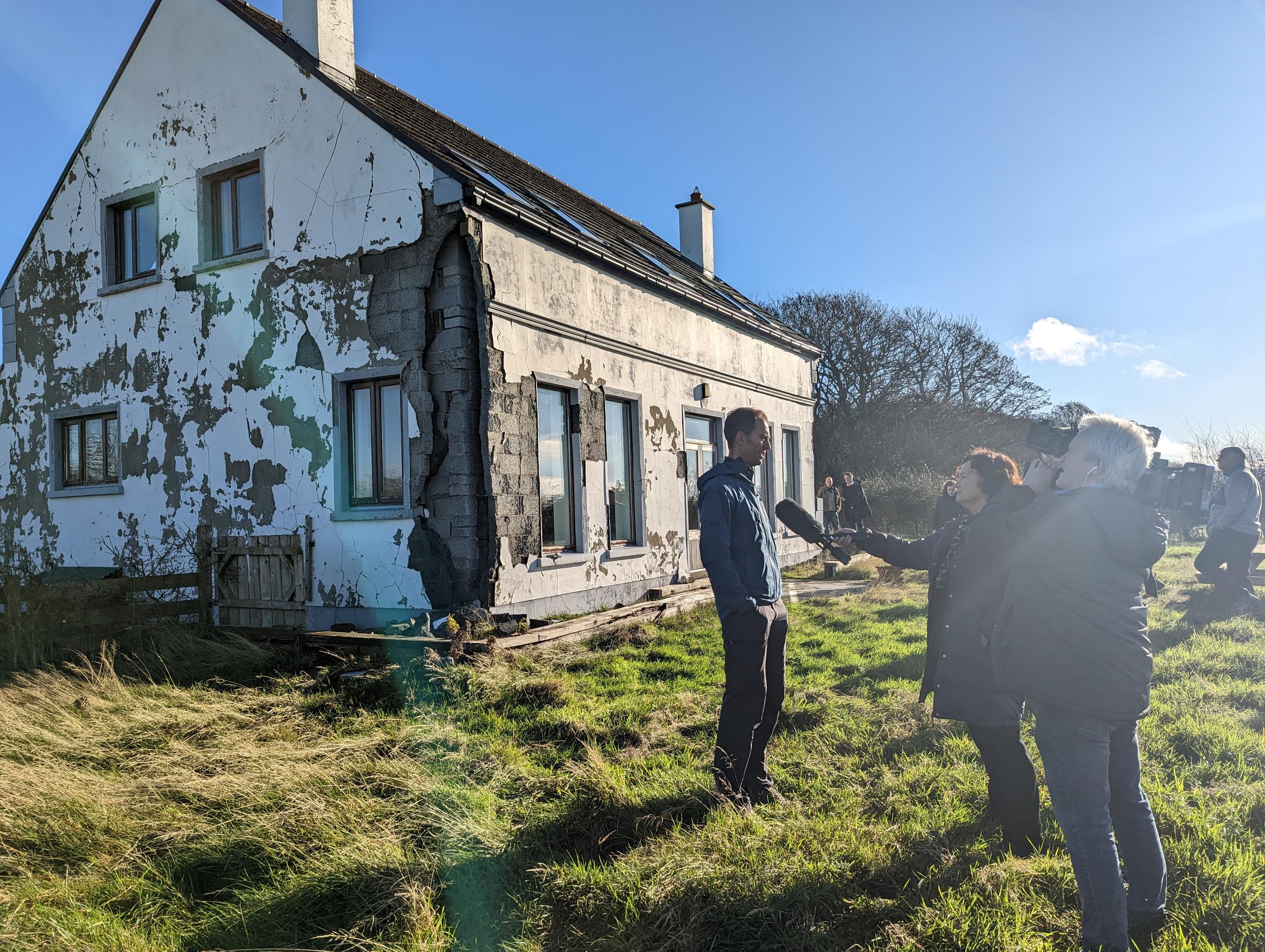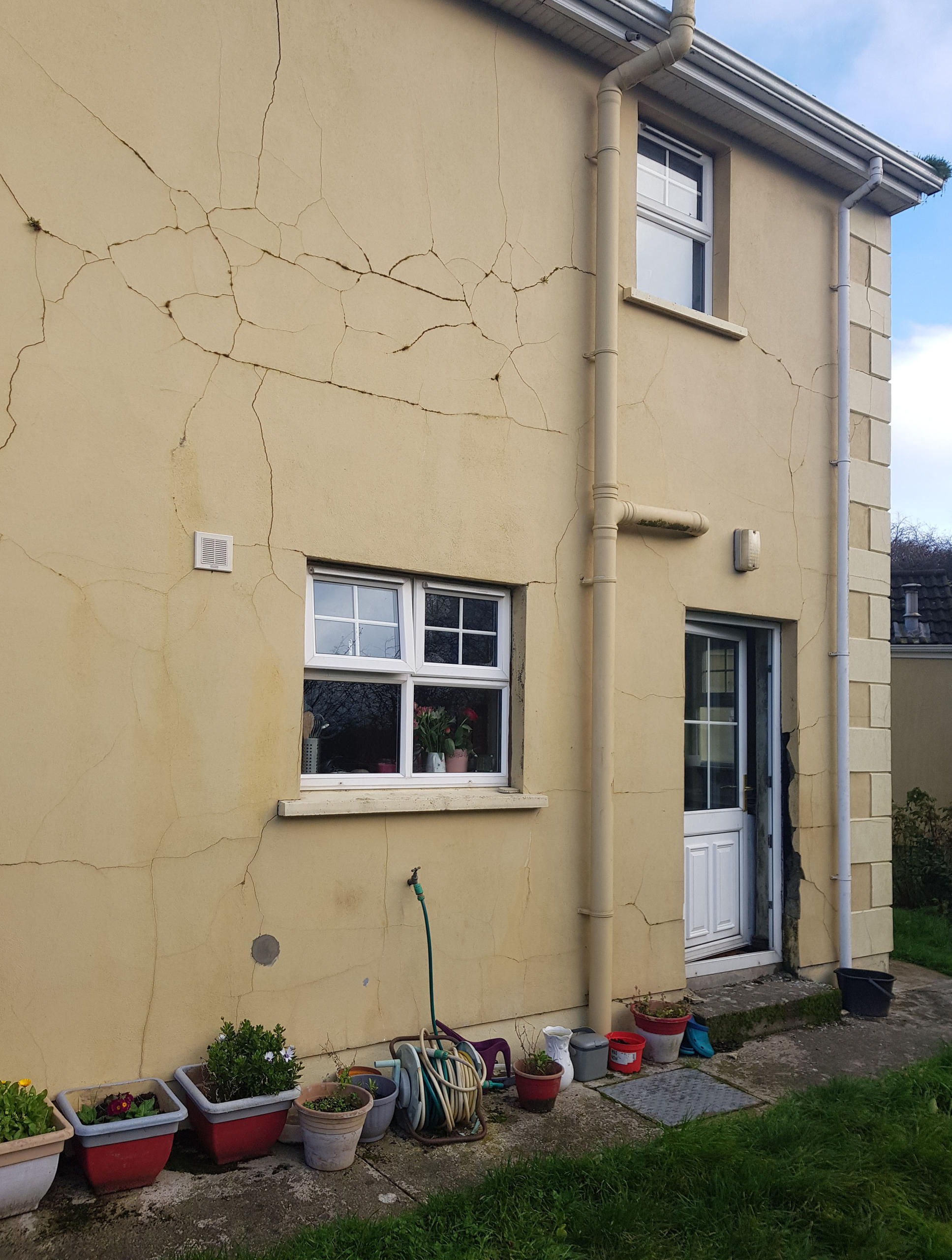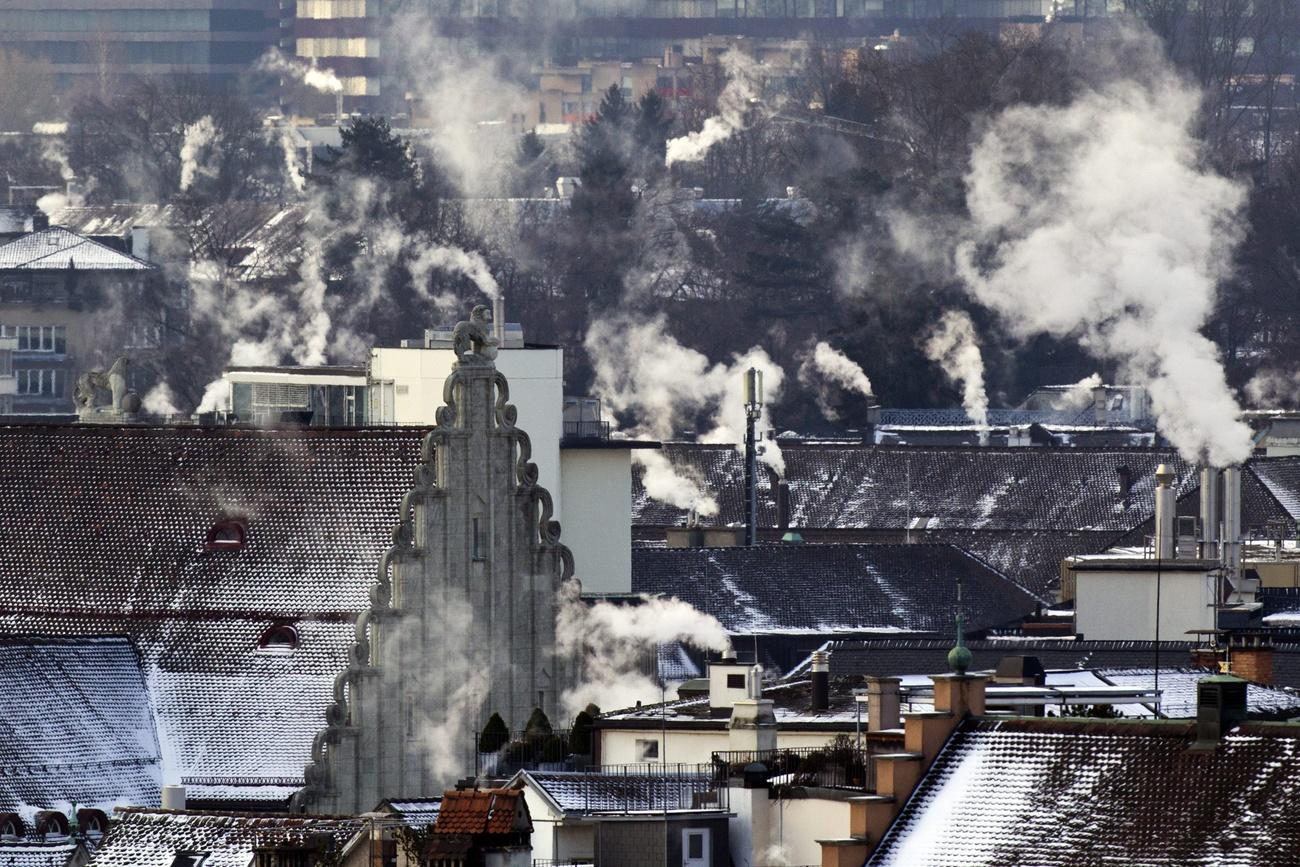
Swiss scientists solve mystery of Ireland’s crumbling houses

For years cracks have been appearing in thousands of houses in County Donegal, Ireland, causing damage and compensation estimated at up to €3 billion (CHF2.95 billion). Scientists from Switzerland have now identified the cause.
“Our houses are crumbling!” read a banner at a demonstration in Dublin. Over the years unstable concrete in County Donegal has caused massive damage to numerous homes, resulting in the need for expensive repairs or even demolition. A government taskforce has been dealing with the issue since April 2016.
An excessively high mica content in the concrete was previously thought to be the reason for the brittle walls, but researchers at the Swiss Federal Laboratories for Materials Science and Technology (EMPA) have now identified the real culprit: the mineral pyrrhotite.
Samples from four affected houses showed that pyrrhotite, consisting of iron and sulphur, is present in the building material in large proportions – and apparently triggers a “disastrous cascade”, EMPA explainedExternal link on Tuesday.
When pyrrhotite in the cement paste of concrete is oxidised by oxygen, this releases sulphur, which in turn leads to the formation of ettringite. This mineral is formed anyway when cement hardens, but the additional ettringite formation leads to expansion, which eventually causes cracks in the concrete.

If more sulphur is released, the mineral thaumasite is formed. This process reduces the strength of the concrete by dissolving important constituents such as calcium silicate hydrates, and can ultimately result in disintegration of the building material.
Although EMPA experts examined samples from only four houses in detail, they said it is likely that the results can be generalised, as data from Irish engineers from nearly 100 affected houses showed that they also contained considerable amounts of pyrrhotite.
‘Really tragic’
The insights from Switzerland have already triggered a considerable response in Ireland, as reports on Irish television and radio and in newspapers show.
“It’s one thing doing the laboratory research, but actually visiting the homes, going inside, smelling the mould, seeing the disastrous conditions, these people waiting for decisions. They are trapped in their houses, they can’t move out. It’s really tragic,” Andreas Leemann, head of EMPA’s concrete technology research group, told the Irish TimesExternal link last month.
“I can’t believe that homeowners are waiting months and months in a house that’s just falling apart. I was coughing after 20 minutes in the houses, because of the mould.”
Meanwhile, it has been announced that the most affected homeowners will receive, in a first step, up to €20,000 in assistance, for example, to move out and find a temporary place to stay or to store their possessions.
Impossible in Switzerland
Leemann told the Irish Times it would be “impossible” for a similar situation to be allowed to happen in Switzerland.
“Such a problem would be handled completely differently. This problem has been known for the last ten years at least. My question is why has there not been a major research project launched into it? The damages are estimated to be in the region of €2 or 3 billion. A decent research programme would cost around €1 million. What’s that compared to €3 billion – it’s nothing. The research should have started ten years ago.”

More
Why most Swiss buildings are environmentally inefficient

In compliance with the JTI standards
More: SWI swissinfo.ch certified by the Journalism Trust Initiative




























You can find an overview of ongoing debates with our journalists here . Please join us!
If you want to start a conversation about a topic raised in this article or want to report factual errors, email us at english@swissinfo.ch.